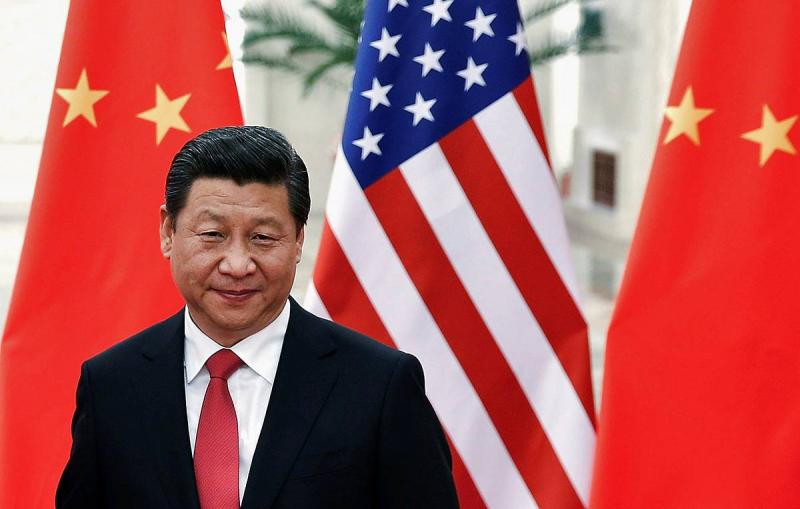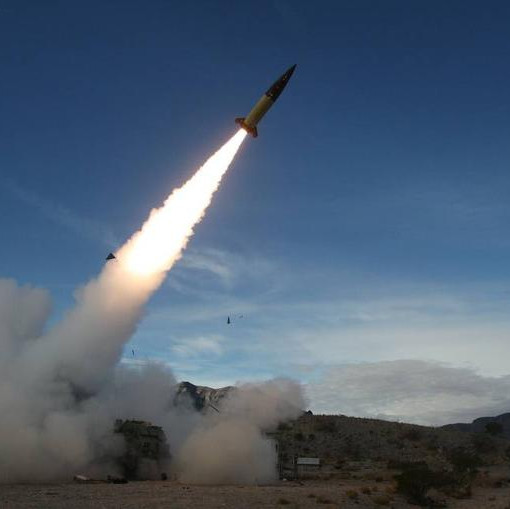
© TASS
Because of the hair-trigger situation around Taiwan due to US House Speaker Nancy Pelosi’s visit to the island, some experts have sprung to declare a possible beginning of WWIII involving nuclear weapons possessed by the United States and China. Fortunately, sanity prevailed this time, and the threat of a direct armed conflict between Beijing and Washington seems to be passed.
However, Ms. Pelosi's visit to Taiwan has once again demonstrated the fragility of peace on our planet. A vital thing in this regard is the Non-Proliferation Treaty (NPT) approved at the UN General Assembly’s XXII session on June 12, 1968. It currently embraces a total of 191 states.
Now, on the eve of Pelosi's visit to Taiwan, US President Joe Biden said China, being a party to the NPT, should engage in nuclear arms talks. "China also has a responsibility as an NPT nuclear weapons state… to engage in talks that will reduce the risk of miscalculation and address destabilizing military dynamics," reads the statement published on the White House website ahead of the NPT conference set to take place in New York on August 1 to 26, 2022.
Just a reminder: the quinquennial NPT Review Conference is key in nuclear non-proliferation and disarmament. It was its participants whom Joe Biden said he was ready to discuss a strategic arms control agreement with Russia to replace the New START Treaty expiring in 2026. He said back then that the United States will "continue working toward the ultimate goal of a world without nuclear weapons."
The US Congress could have been another intended recipient of Biden's message, as both of its chambers are growing increasingly decisive to recognize Russia as a state-sponsor of terrorism. This implies both new sanctions within an inch of overall isolation and US actions against third-country counterparties that maintain relations with such a country.
In this regard, there is no need to make a federal case out of Biden's words that the United States is ready to resume contacts with Russia except for prisoner exchange talks. With ongoing warfare in Ukraine, any comprehensive negotiations on the New START Treaty are hardly conceivable. In a sense, all the statements by President Biden are pure propaganda of Washington's "peaceful foreign policy." Just that much. The truth is rather different, as Russian Foreign Minister Sergei Lavrov reminded shortly before.
In particular, the diplomat said the United States did not offer to resume negotiations on strategic stability to develop a new agreement to substitute for the expiring one. "As for negotiations on a possible new treaty after the New START expires, last year the American side took a pause following two rounds of talks. At the current state of foreign relations development, they didn’t even propose to renew these talks," Lavrov told reporters. "They have developed a habit of making announcements on the microphone and then forgetting about them. No requests on reopening this negotiating process have been made," the minister added. Simple as that. The Russian Foreign Minister has briefly and clearly outlined all of Washington's foreign policy initiatives, namely disarmament.
Notably, even before the US-Chinese relations aggravated over Pelosi's visit to Taiwan, the United States offered China to join the process of developing a new strategic arms treaty, but Beijing refused, alluding to the disproportionate number of nuclear warheads possessed by China and the United States. After that, Washington started insisting that Moscow put pressure on Beijing on the issue. Russia refused, naturally. Here's what Sergey Lavrov said in this regard: " When and if that happens, it will be up to China itself to decide whether to join these talks, the Americans know our position perfectly well."
There is another obvious fact here. The United States wants to engage both Russia and China in a long-term strategic arms negotiation process. Washington needs time to catch up with Moscow in creating the most cutting-edge weaponry like hyper weapons the United States lacks and Russia doesn’t. Meanwhile, the United States is developing a plan to modernize its strategic triad and nuclear weapons in general worth a total of $1.2 trillion in order to keep its "nuclear shield and sword" ready over the next 30 years. In this context, Joe Biden's statements about his readiness to hold negotiations on the New START Treaty do not have the air of haste – the United States just needs to buy some time.
Here let’s describe Russia’s overall reaction to the US proposal of unfreezing the arms control dialogue amid the ongoing conflict in Ukraine. It was ambiguous, if not contradictory: the Security Council doubts that dialogue with the Americans should be restored, while the Kremlin says this should be done as soon as possible, and the Foreign Ministry accuses the Americans of concealing the true underlying reason.
Deputy Chairman of the Russian Security Council Dmitry Medvedev was first to respond to President Biden's statement. "A little more than a month ago, I wrote that strategic security issues, which could not be solved without us, were extremely important for the Americans. And they will come creeping to us with this issue. Well, they did," he wrote in his Telegram channel. "All this is certainly good. But let me say it once again – now the situation is much worse than during the Cold War. A lot worse! And through no fault of our own. The main thing is. ... do we really need this? The world is a different place."
The Kremlin gave a rather positive assessment to Joe Biden's statement. "Moscow has repeatedly highlighted the need to launch such talks [on the future arms control framework] as soon as possible, because the time is running out," Press Secretary to the President of Russia Dmitry Peskov told reporters. If the START Treaty ceases to exist without being replaced with another solid document, he said, “it will have the most negative impact on global security and stability, first and foremost, in the field of arms control." The official added that the relevant contacts "can certainly be held only based on mutual respect, when the parties are ready to take each other’s concerns into account and listen to each other’s concerns."
As for the Russian Foreign Ministry, spokeswoman Maria Zakharova said the following at a briefing: "The US must now decide for itself whether it is really ready for a dialogue on strategic stability based on equality, mutual respect and due regard for national interests. For now, we see Washington sitting on the fence. " According to her, the US administration has long been trying to isolate itself from Russia by severing all the contacts, "and now all of a sudden it starts talking about a new agreement to replace the New START. Maybe this is some kind of pre-election gimmick in the United States or some other time-serving rhetoric," the diplomat admitted.









